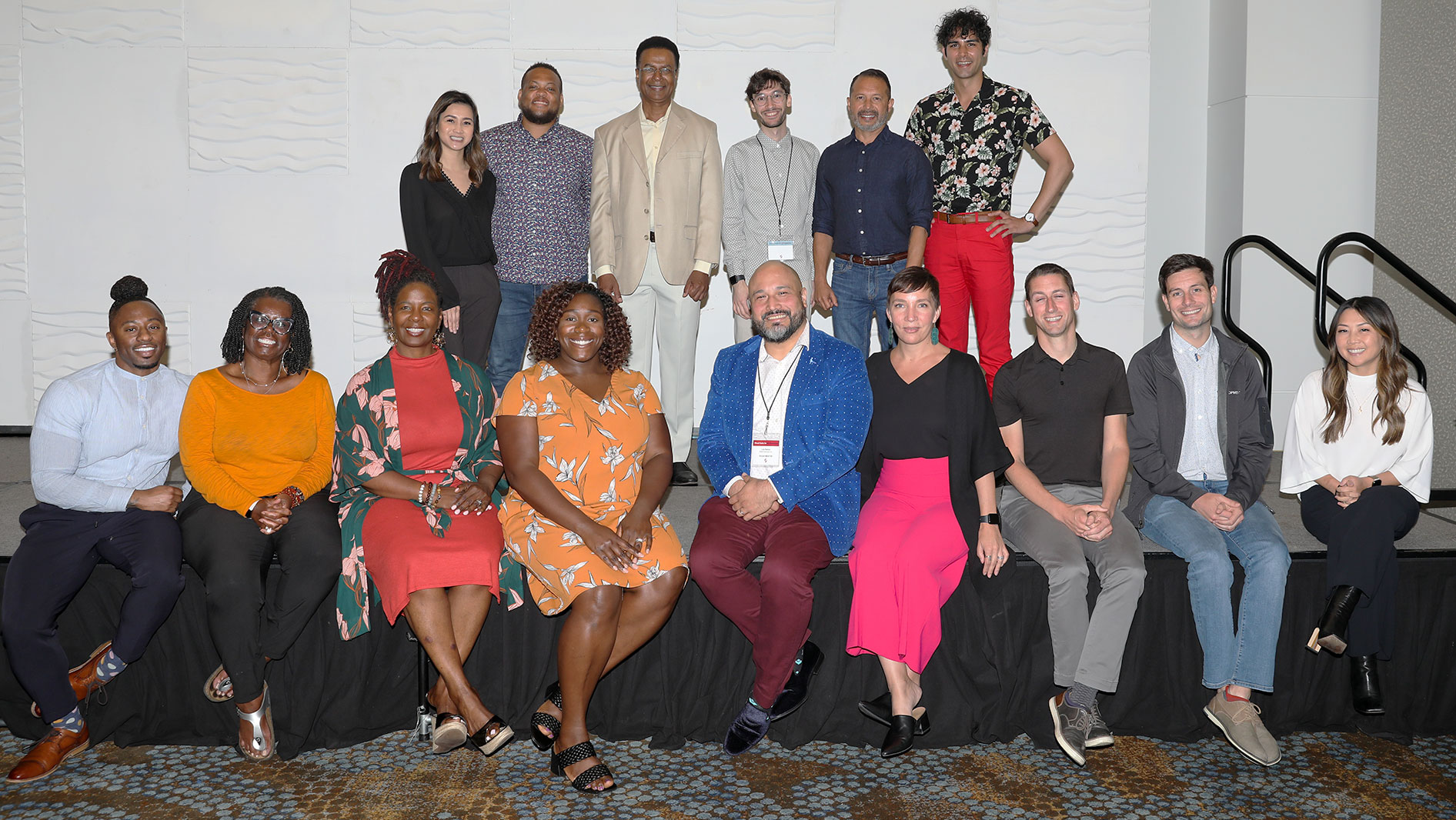Share Article
When Pip Petersen heard the name of his team announced as the winner of Gilead’s Hacks for HIV Prevention contest, his jaw dropped open in surprise. Pip, a PhD student in physics at Case Western Reserve University in Ohio, had been impressed with all the hackathon pitches, but it was his team’s idea that took home the top prize.
Pip, together with Alex Garner and Panyaphon “Ten” Phiphatkhunarnon, formed Team Love. The trio created a chatbot application called On Point that utilizes targeted advertising and data to engage with people who could benefit from pre-exposure prophylaxis (PrEP) medication that helps prevent HIV infection. The goal of the hackathon was to identify innovative, digital solutions to help improve PrEP education, access and care services, particularly for the Black and Hispanic/Latinx communities in the Southern United States.
While PrEP medicines are a key to helping end the HIV epidemic in the United States, 2020 data from the Centers for Disease Control and Prevention shows only 25% of people who could benefit are accessing PrEP medication. The numbers are much worse in some communities, with only about 9% of the Black and 16% of the Hispanic communities that could benefit from PrEP accessing the medication.
The reasons for the low numbers of current PrEP users are varied, explains Dr. Wayne Duffus, Executive Director of Global Medical Affairs for Gilead’s HIV prevention efforts. Generally, the obstacles to HIV prevention include unaddressed social determinants of health such as stigma, mistrust and distrust of the medical system, and the proximity and availability of facilities and health care providers offering PrEP medication and prevention services to appropriate individuals.
“Despite the extensive pharmaceutical and public health outreach to engage with health care providers and appropriate PrEP users, the growth trajectory has been slow to rise,” says Wayne. “We recognized the need to find novel approaches to communicate and engage with people who can benefit from PrEP.”
That’s how the hackathon was born. Now in its second year, Wayne got the idea to host the event after seeing his colleagues on the Global Patient Solutions team come away with successful technological solutions from their own hackathon.
In all, 15 individuals competed in the two-day June event in Atlanta. Some attended in person, some virtually. The teams worked with the support of mentors from Gilead’s Medical Affairs departments. Each team had three minutes to make their presentation to a panel of judges made up of two Gilead employees and four external community tech experts.
Wayne was impressed with how the different teams understood the barriers to HIV prevention services and addressed the challenge using technology that included augmented reality, artificial intelligence and machine learning, as well as chatbots.
"They understood the challenges and urgency of the issues, and with great simplicity, explained how various technologies could be applied to address it,” he says.
Alex, of Team Love, has more than 30 years of experience working in HIV prevention and has seen how community-based organizations, particularly communities of color, historically lacked equitable access to modern technology.
“Our goal was to target ads tailored to gay and bisexual Black and Latino men, two of the communities most disproportionately impacted by HIV,” he explains. “The concept can help to not only level the playing field, but it can also help amplify and engage the very communities that are most vulnerable.”
The ads can be found on most online sites and apps, including Facebook, Google, Grindr, Twitter and the New York Times. Once the ad is clicked, it directs users to a website manned by a culturally competent chatbot that engages with them and connects them to access points for HIV testing and PrEP services, as well as other preventive resources. Perhaps best of all, the audience data and chatbot technology are open source and available for nonprofits.
Ten, the tech guru of the team, was very intentional in the technology he chose to more effectively engage the audience.
“I know a younger person doesn’t want to read a long article when they can instead get the same information in a fast and simple format,” he says.
This and other ideas from the hackathon are now being discussed internally, with Gilead planning to move some forward for further development.
“Team Love’s On Point idea was the overall winner, but all the presentations were clearly ‘on point’ with innovative digital solutions to help improve PrEP education and utilization,” says Wayne.
Photo of Gilead’s HIV Prevention hackathon mentors with event lead, Dr. Wayne Duffus and the first-place entrant, Team Love’s Pip Petersen (center, back row).

